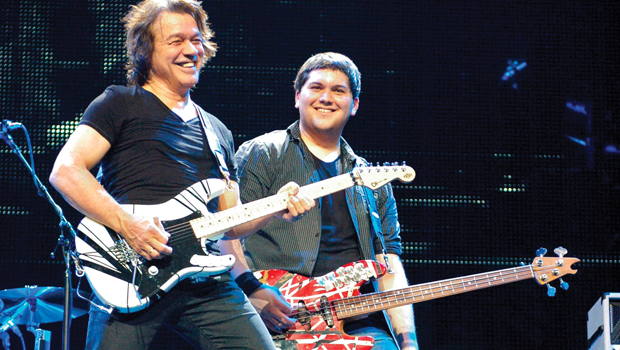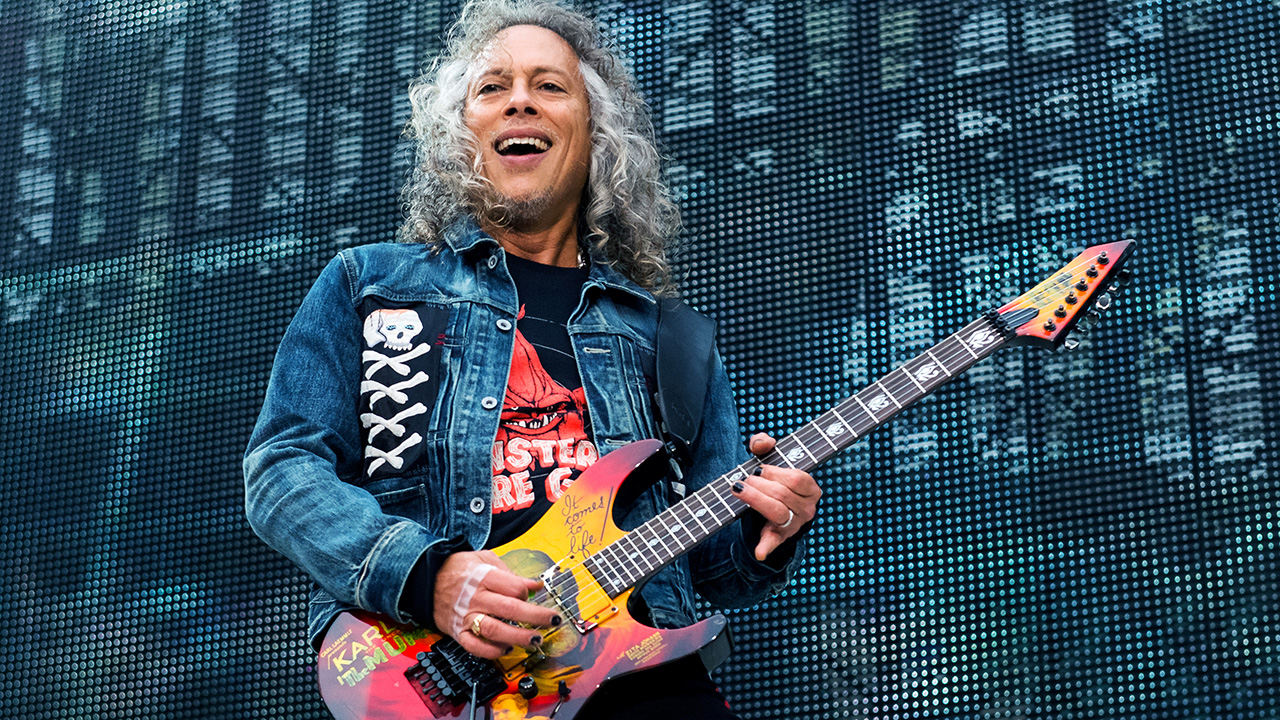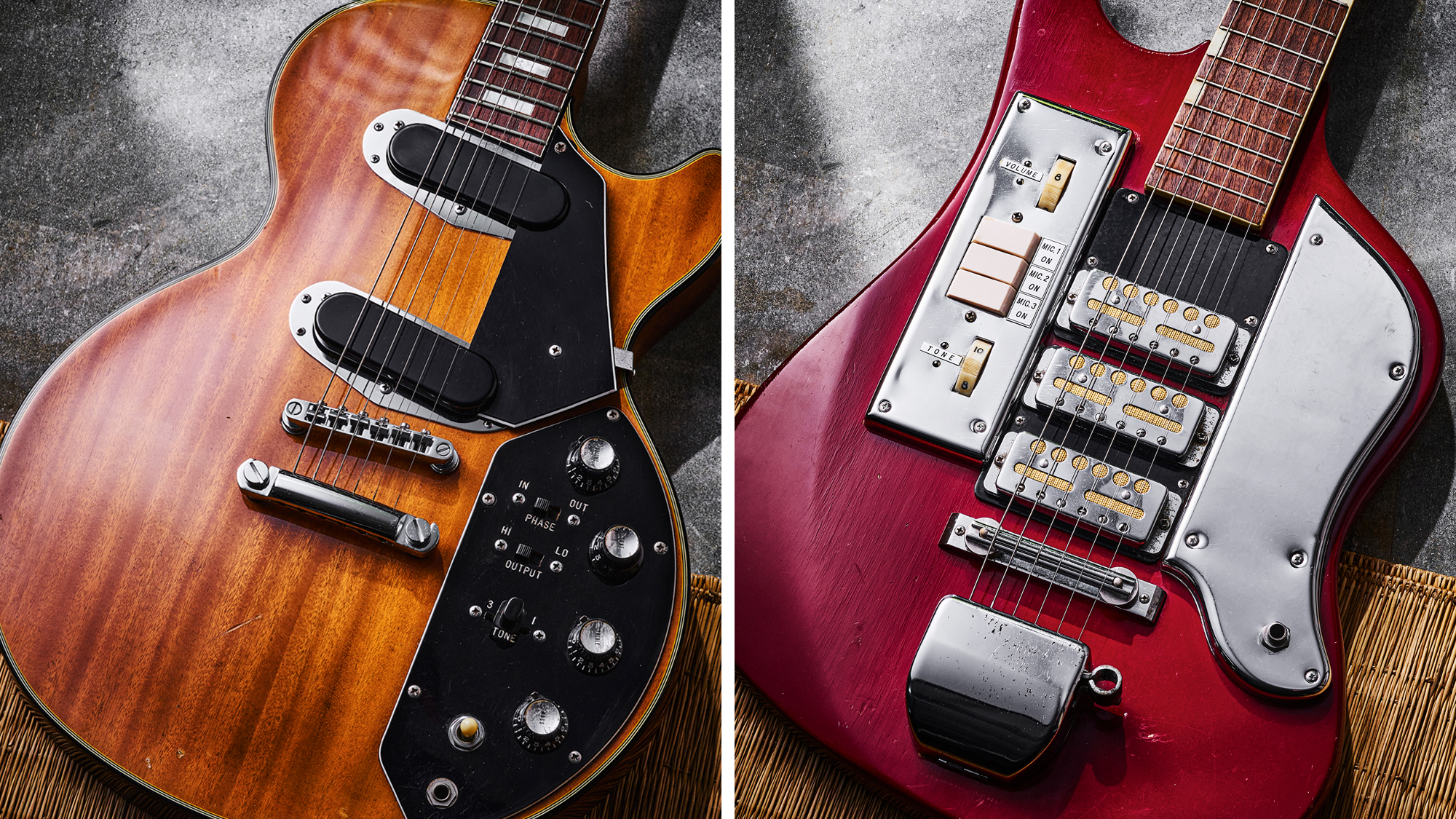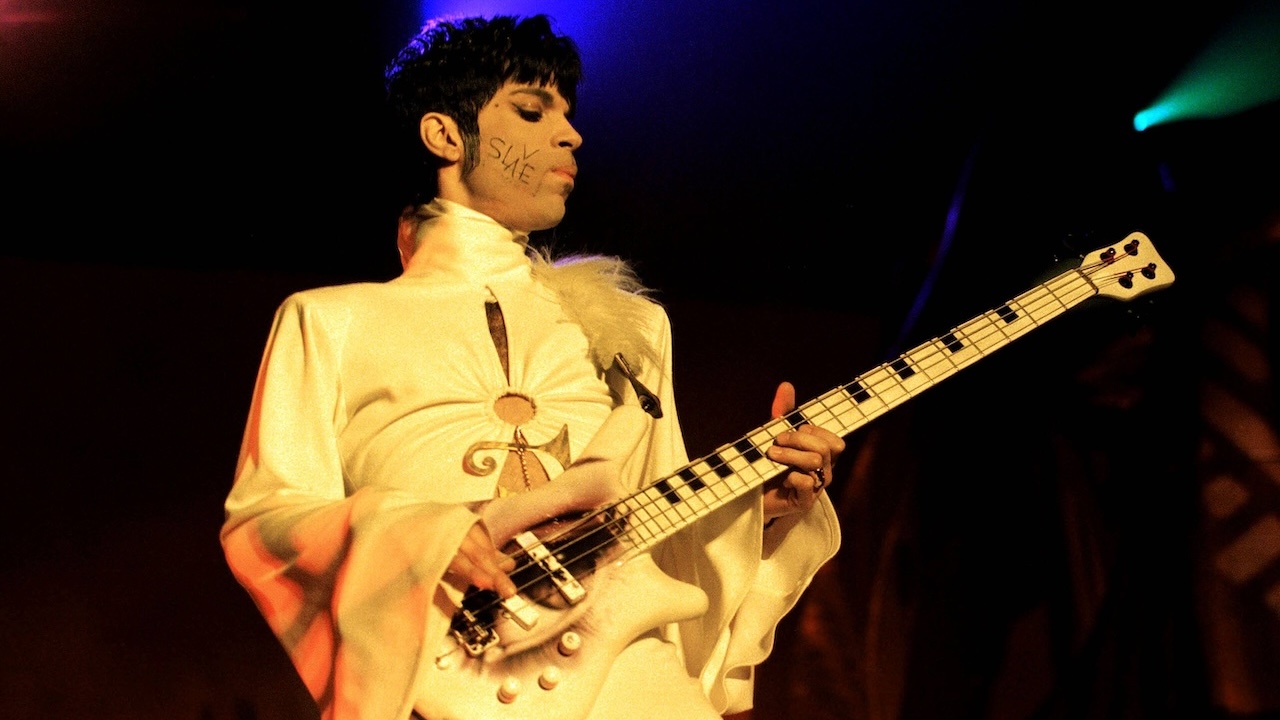Interview: Wolfgang Van Halen Talks Bass, 'A Different Kind Of Truth' and More

The current version of Van Halen is to music what a street rod is to the automobile. With David Lee Roth back as the band’s frontman, Van Halen has restored its classic appeal, but at the same time the addition of 21-year-old Wolfgang Van Halen on bass has modified the band with a significant boost in power and style.
Wolfgang made an impressive if slightly understated debut with Van Halen during the band’s 2007–08 tour, but since then he’s become a force to be reckoned with. He took the reins on A Different Kind of Truth, selecting material from past demos, helping write new songs and inspiring everyone to perform their best. Bass also now plays a much more prominent role in Van Halen’s music than it has in the past, whether it’s the distinctive distorted growl of “Honeybabysweetiedoll,” his mammoth grooves on “The Trouble with Never” or his fleet-fingered fills throughout the entire album. Hearing the tapped unison guitar and bass lines on “China Town” leaves no doubt that Wolfgang is a Van Halen, as the parts are locked together in a way that can only be linked by DNA.
Any doubts about Wolfgang’s talents and contributions were quickly erased by his performance on the album as well as during Van Halen’s intimate pre-tour gig in January at Manhattan’s tiny Café Wha? where both his playing and singing chops were on full display up close and personal. On the Different Kind of Truth tour, Wolfgang seemed much more confident and comfortable with his role in the band. This was particularly evident during soundcheck the evening we interviewed Wolfgang and Ed in Atlanta, when Wolf had the band repeat the ending of “Women in Love” several times until they finally nailed the ascending chord progression perfectly.
As impressive as Wolfgang’s playing and singing is, what’s even more extraordinary is how his addition to the band has given Van Halen a new vitality. While it seems like a miracle that A Different Kind of Truth was even made, what is more surprising is how hard-hitting and aggressive it sounds. It’s the type of album that a band makes when it still has something to prove and is hungry. Apparently, the excitement of Wolfgang recording his first album with the band rubbed off on everyone else. In this Guitar World exclusive, the young bassist talks about making the new album, taking it on tour and working with his dad to put Van Halen back in action.
When you were growing up was there a particular moment when you realized that your dad was not just an ordinary dad but Eddie Van Halen?
Not really. I didn’t notice until I started picking up CDs and saw his picture on them. I remember once when we got home from a trip and we were at LAX. I was probably only six, and I was half passed out and my mom was holding me. I just remember a bunch of flashing lights because paparazzi were following us. That’s the only memory I have that was unusual.
How did your interest in playing music develop?
Get The Pick Newsletter
All the latest guitar news, interviews, lessons, reviews, deals and more, direct to your inbox!
It just happened. Most people would think that my dad pushed me, but he didn’t. It just fell into place. Whenever dad would rehearse, I would just sit on the floor and watch the band play. Whenever I had the chance I would always try to sit on my uncle Al’s drum kit and bang away. We have some pictures of me up at the studio where I’m only five years old and I’m attempting to play this ginormous kit.
I started playing drums when I was nine or 10. My dad gave me my first set of drums for my 10th birthday. I started getting really into it, and then I moved on to guitar and then to bass. I can also play a few songs on keyboards and figure things out by ear, but I’m actually most comfortable playing drums.
When did you pick up the bass?
I went over to bass right before we started rehearsing together. My dad started asking if I wanted to jam with him. I always viewed bass as an easier version of guitar, but as soon as I started playing it I realized how wrong that was. It’s completely different, but I felt like I could handle it since I had been playing guitar for so long.
Was it intimidating to play with your dad and uncle at first?
A little bit, but it quickly fell into place and felt right. We’d get together every week to rehearse, and it was a lot of fun. I didn’t even realize what was happening until a couple weeks later. That was when we knew something concrete was happening and that we might be able to make something out of it.
Going on a major world tour when you were only 16 must have been quite an experience.
It was crazy to be part of something that big right from the start. I felt really lucky to be there, but I felt confident in my singing and playing because we had rehearsed for two full years before the tour.
You played a major role in making A Different Kind of Truth happen. How did the process begin?
We took about three months off after the last show we played on the last tour, then we all got together and started jamming again. Just to warm up we played “Drop Dead Legs,” “Outta Love Again” and “Unchained” at the first rehearsal we did, and we recorded it. It almost felt brand new. That got us all to thinking that maybe we should record something new, especially since we had been playing all of the old songs for so long. I knew that Van Halen had this incredible catalog of music they’ve recorded and written that nobody has ever heard.
Some people have heard a few of the unreleased demos, but there’s so much more that they haven’t. When you walk into the studio there are endless shelves of recordings. I grabbed a bunch of random tapes and picked out a few songs that I had known and liked. We started changing them around and writing new parts for them. We recorded the first demo of “She’s the Woman” in August of 2009, and it felt really awesome. It felt like classic Van Halen that was written today. It had the right mix of old and new. Then everything started falling together and we went to work on more songs.
Considering that this was the band’s first full-length album with David Lee Roth in 28 years it seems like it was a good idea to combine songs from the band’s beginning, the later period with Roth like “Ripley”/“Blood and Fire,” and entirely new material.
I wanted to remind my dad of the mindset he was in when he wrote songs like “Runnin’ with the Devil” and “Dance the Night Away.” I thought that recording those old songs would make it easier for dad, Dave and Al to put their minds where they were back then and get back to writing how they would have then. At first when the album came out we had a bunch of haters who were mad that we recorded new versions of songs that they had already heard, but they don’t understand that that is what almost every single musician does. They write music, and some of it gets used and some of it doesn’t. Only the diehard fans have bootlegs of those demos.
And there is a lot of new material on the album as well. It’s like all eras of Van Halen slammed onto one record. The old songs don’t sound the same as the old versions. The songs sound like where we are now.
Your bass tone is very aggressive.
I feel that might have a lot to do with the fact that I also play through a 5150 III head for dirt. It adds that mean tone. Dad likes to call me a rhythm bassist, like I’m a rhythm guitarist and a bassist put together. I’ll follow him on certain riffs, or on songs like “She’s the Woman” I’ll lay down the bottom end. I haven’t tried to change how the band sounds. I just play what I feel sounds cool.
Who are some of your bass influences?
When I started out I was really into Les Claypool and Justin Chancellor from Tool. I also like Chris [Wolstenholme] from Muse, John Entwistle, Jack Bruce and all of the classic players.
You play a lot of cool fills. On “She’s the Woman” you added parts that weren’t there before.
Some of that stems from boredom. We played a lot of that material over and over for a year and a half before we recorded it. Every single day it was “She’s the Woman” and “The Trouble with Never.” I would come up with these cool fills out of boredom. Dad and I would go, “That was a cool thing. Let’s keep that.” For the longest time the intro to “China Town” was just my dad doing that tapping part. There was this capo just sitting there in the studio, and I thought it would be funny if I grabbed the capo and did it with him. We recorded it and it sounded really awesome, so we ended up doing that on the record. A lot of things just happened like that. We never planned it.
There’s an incredible tightness on many of the parts. Sometimes you and your dad blend together so seamlessly that it sounds like one big instrument instead of two separate players.
I think that’s because we’re blood. It’s almost like we don’t even need to think about it. When Al stops we all stop. If dad messes up, we fix it in a second before anyone else can realize that anything is wrong. It just happens. The dirt of the bass also blends better with the guitar and makes it all whole.
In the studio you allegedly became a co-producer of the album.
I guess dad likes to think of me as some sort of leader now. He was always going, “Do we have to do that? Are you sure?” I’d be like, “Yes, we should rehearse this, let’s do this, let’s change that, how about this?” I assumed that position. For a while people were going, “Okay, Wolf, shut up. You’re coming up with too much. Chill out.” I was just so excited, but a lot of it was just because I thought something else might sound good and we should try it.
You’re now in charge of doing the set lists for each show on this tour.
Since it’s the second time around I felt we should have more liberty to reach back into the vaults and pull out some older songs like “Women in Love,” “Girl Gone Bad,” “Outta Love Again” and “The Full Bug.” We’ve rarely played the same set list from one night to the next. There’s almost always some variation. We’re working on a few other songs to throw in later. That keeps it fun. Everybody gets a different show.
We already play a lot of the hits, so I wanted to throw in some songs, like “Hang ’Em High”—there is no previous live version of that song out anywhere—and “Hear About It Later,” that the diehards love. It all stems from the fact that those songs are also some of my favorite songs. I was telling the guys that they haven’t played some of these songs since 1982, and I knew that everybody would go crazy over them.
You seem to be a lot more comfortable onstage this time around, both with your playing and also your attitude.
I’m older now. I’m 21. I’m coming into my own. I really feel like I’m supposed to be doing this and that I have something to prove. I really want to show people that I can do it. There are always these haters who say that my dad played everything on the record and that I’m not singing. That used to hurt me a lot, especially on the first tour, but now I’m content knowing that I really am doing everything. If people can’t accept that, then they’re the ones with the problem. In a way it’s a big compliment because I really am playing bass and singing up there onstage and on the album. All that matters is that I’m confident in myself.
For the full interview, check out the August 2012 issue of Guitar World, which is available now at the Guitar World Online Store. The issue also includes an up-close-and-personal look at Ed and Wolfgang Van Halen’s stage rigs and an exclusive interview with Eddie Van Halen! The new issue is available now at the Guitar World Online Store.
“Tom would say, ‘Play your guitar with a car key.’ It was very experimental”: Little Feat's Fred Tackett recalls Tom Waits' left-field approach to guitar playing – and his one-of-a-kind studio sessions
“Seeing friends and heroes of mine having their solos plagiarized broke my heart”: Giacomo Turra used their solos note-for-note for his own viral content. Now the guitarists who had their playing “stolen” are speaking out










